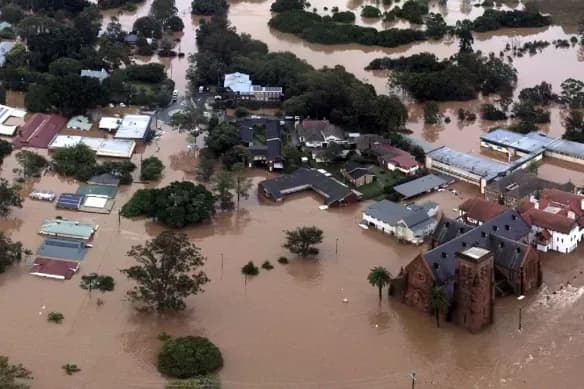Flooding has become one of the biggest concerns for homeowners, tenants, and real estate investors in Juba, South Sudan. Each rainy season, rising Nile water levels and poor urban drainage systems increase the risks of flooding across low-lying neighborhoods. While Juba does not experience the catastrophic floods seen in Jonglei or Upper Nile, heavy rains still cause property damage, displacement, and loss of value in the housing market.
In this blog, we break down how flooding impacts housing, renting, property sales, and the real estate sector in Juba, and what you should do before investing in or renting a property.
Why Flooding in Juba is a Growing Concern
According to the Ministry of Water Resources and Irrigation, the Nile reached water levels of 13.44 metres in August 2023, a red flag for possible seasonal floods. Historically, similar measurements have preceded flooding in nearby states. For residents in Juba’s low-lying areas, this means greater risk of:
- Water damage to homes – Cracked walls, damaged flooring, and weak foundations.
- Health risks – Contaminated water sources leading to waterborne diseases.
- Property devaluation – Homes in flood-prone areas are harder to rent or sell.
- Higher living costs – Frequent repairs, insurance concerns, and disrupted livelihoods.
Effects of Flooding on Housing in Juba
Flooding doesn’t just inconvenience homeowners — it can permanently alter the housing landscape.
Structural Damage
Houses built near swamps, rivers, or poorly drained areas often suffer cracked walls, weak foundations, and mold growth after floods.
Increased Maintenance Costs
Flooded homes require frequent renovations, raising long-term living expenses for both landlords and tenants.
Insurance and Safety Concerns
Many properties in Juba are not insured against flooding, leaving owners with significant out-of-pocket expenses when disaster strikes.
Flooding and the Rental Market in Juba
For tenants, flood risk directly impacts rental decisions:
- Demand shifts – Renters prefer safer neighborhoods with elevated foundations and proper drainage, leading to higher rents in flood-safe zones.
- Tenant turnover – Houses that flood regularly experience higher tenant turnover, creating financial losses for landlords.
- Transparency issues – Some landlords fail to disclose past flooding, making it crucial for renters to check for water marks, damaged flooring, and poor drainage before signing a lease.
Flooding and Property Sales in Juba
For property buyers and investors, flooding affects both property values and marketability:
- Lower resale value – Properties in flood-prone areas often sell below market value due to associated risks.
- Reduced buyer confidence – Investors hesitate to commit to long-term purchases in areas with poor drainage.
- Hidden costs – Even if a house looks appealing, flood damage can increase future maintenance and reduce profitability.
How Flooding Impacts Real Estate Development in Juba
Flooding challenges also slow down real estate growth:
- Construction delays during heavy rains.
- Higher building costs due to demand for elevated foundations and stronger drainage systems.
- Uneven development – safer neighborhoods attract more real estate projects, while flood-prone zones lag behind.
For developers and investors, factoring in flood risks is crucial for long-term sustainability.
Tips for Buyers and Renters in Juba’s Flood-Prone Areas
Before renting or buying a home in Juba, follow these steps to reduce flood risk:
- Check past flood history – Ask landlords or agents if the property has ever flooded.
- Inspect the house – Look for water marks, damaged walls, and weak flooring.
- Confirm drainage systems – Ensure there are proper channels to redirect rainwater.
- Look at the foundation – Raised foundations reduce flood risk.
- Protect utilities – Boreholes, septic tanks, and water tanks should be safe from flood damage.
Final Thoughts
Flooding is more than just a seasonal inconvenience in Juba — it is a major factor influencing housing, property renting, sales, and real estate investment. Whether you are a buyer, renter, or investor, doing due diligence before committing to a property is essential.
By choosing flood-safe locations, inspecting homes thoroughly, and considering long-term costs, you can make smarter decisions in Juba’s real estate market.

